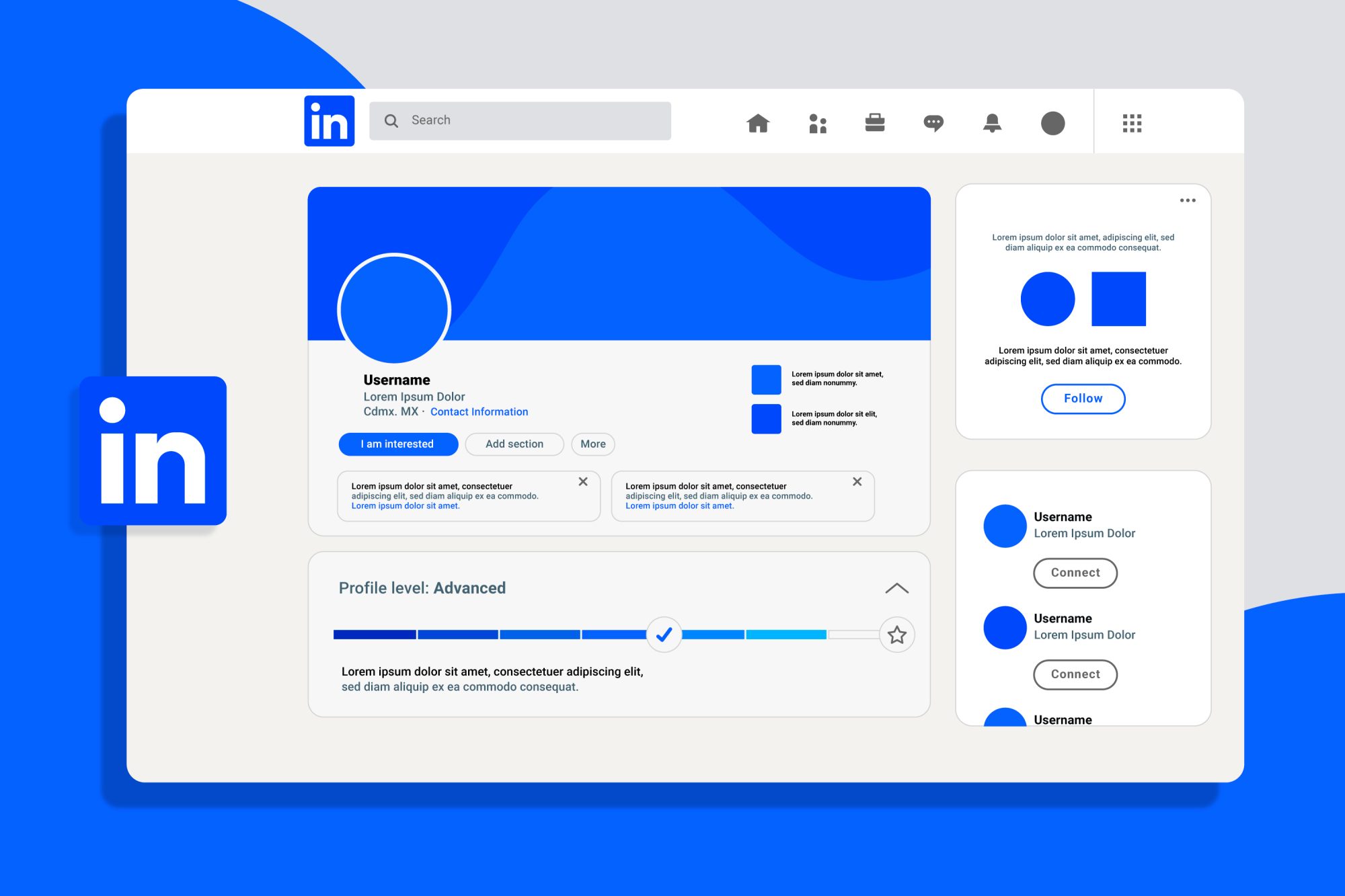Professional Networking Events and conferences stand as dynamic platforms that harness the collective power of professionals, thought leaders, and innovators from diverse fields and industries. These gatherings serve as vibrant hubs where connections are forged, knowledge is shared, and collaborations are cultivated, shaping the landscape of professional development and industry advancement. In today’s fast-paced and interconnected world, the significance of networking events and conferences cannot be overstated, as they offer invaluable opportunities for individuals to expand their networks, deepen their knowledge, and propel their careers forward.
Opportunities for Connection and Collaboration
Networking events and conferences serve as fertile grounds for forging connections with peers, industry leaders, potential collaborators, and even mentors. These events bring together professionals from various backgrounds, disciplines, and geographic locations, facilitating the exchange of ideas and fostering collaborations that can lead to innovative projects, partnerships, or business ventures. Whether through informal conversations during coffee breaks or structured networking sessions, attendees have the chance to expand their professional network and build relationships that can be mutually beneficial in the long term.
Knowledge Acquisition and Skill Development
Conferences typically feature a diverse range of sessions, workshops, and presentations led by subject matter experts, thought leaders, and practitioners in the field. These sessions cover a wide array of topics, from cutting-edge research and industry trends to practical tips and best practices relevant to attendees’ professions or areas of interest. By actively participating in these sessions, attendees can deepen their understanding of their field, acquire new skills, and gain insights that can enhance their professional competence and effectiveness. Additionally, networking events often include opportunities for skill-building activities such as public speaking workshops, leadership seminars, or career development sessions, empowering attendees to enhance their skill set and advance their careers.
Career Advancement and Visibility Through Business Networking Events
Attending business networking events and professional conferences can be a game-changer for individuals looking to enhance their career prospects. These events offer a unique opportunity to increase visibility within an industry or professional community, establish valuable connections, and position oneself as a thought leader.
Showcasing Expertise Through Active Participation
One of the most effective ways to leverage business networking events for career growth is through active participation. Engaging in conference sessions, panel discussions, or poster presentations allows individuals to showcase their knowledge, expertise, and contributions to their field. By taking an active role, professionals can:
- Demonstrate thought leadership – Sharing insights, research, or innovative ideas in front of an audience can establish credibility.
- Gain peer recognition – Contributions to discussions or presentations can lead to acknowledgment from colleagues, influencers, and industry leaders.
- Attract career opportunities – Visibility can result in job offers, collaborations, or invitations to contribute to industry projects.
Expanding Professional Networks
Business networking events create a dynamic platform for professionals to connect with recruiters, decision-makers, and influential figures in their industry. Building strong professional relationships through networking can lead to:
- Job referrals and recruitment opportunities – Many companies prefer hiring candidates through referrals, making networking events a key avenue for career advancement.
- Mentorship and professional guidance – Connecting with seasoned professionals can provide valuable insights and career mentorship.
- Partnership and collaboration prospects – Networking can lead to joint ventures, business partnerships, or consulting opportunities.
Gaining Recognition and Career Advancement Opportunities
Heightened visibility within an industry often results in increased recognition, which can open doors to various career-enhancing prospects, such as:
Business and client growth – For entrepreneurs and freelancers, networking events provide an opportunity to connect with potential clients and expand their businesses.
Promotions and leadership roles – Employees who actively participate in industry events are often seen as motivated and knowledgeable, making them strong candidates for promotions.
Speaking engagements and media exposure – As professionals gain recognition, they may be invited to speak at future events, contribute to industry publications, or participate in media interviews.
Cultivating Meaningful Relationships
Networking events and conferences offer a conducive environment for building genuine, meaningful relationships with fellow professionals. Beyond exchanging business cards or LinkedIn connections, attendees have the opportunity to engage in substantive conversations, share experiences, and establish rapport with others who share similar interests or career aspirations. These relationships can evolve into long-term professional connections, mentorship opportunities, or collaborative partnerships that extend beyond the duration of the event. By investing time and effort in nurturing these relationships through follow-up communication, mutual support, and ongoing engagement, attendees can cultivate a robust professional network that serves as a valuable resource throughout their careers.
Access to Industry Insights and Trends

Conferences provide a platform for staying abreast of the latest developments, innovations, and trends shaping the industry or field of interest. Keynote speeches, panel discussions, and presentations by industry leaders offer valuable insights into emerging technologies, market trends, regulatory changes, and other factors influencing the professional landscape. By attending these sessions and engaging in discussions with experts and peers, attendees can gain a deeper understanding of the current state of the industry, anticipate future opportunities or challenges, and adapt their professional strategies accordingly. This knowledge not only enhances their professional competence but also positions them as informed and proactive leaders within their respective fields.
Exploring Career Opportunities and Professional Growth
Professional Networking Events and conferences serve as fertile ground for exploring a wide range of career opportunities, whether in the form of job openings, freelance projects, consulting opportunities, or collaborative ventures. Career fairs, recruitment sessions, and networking receptions provide platforms for connecting with potential employers, recruiters, or clients and exploring potential avenues for professional growth and advancement. Moreover, conferences often feature sessions focused on career development, such as resume workshops, interview preparation seminars, or personal branding sessions, offering attendees practical guidance and resources to navigate their career trajectories effectively. By actively engaging with these opportunities and leveraging their network connections, attendees can identify and pursue career paths aligned with their aspirations and goals, thereby fostering their professional growth and success.
Fostering Innovation and Creativity
Networking events and conferences serve as catalysts for fostering innovation and creativity within the professional community. By bringing together diverse perspectives, experiences, and expertise, these events create an environment conducive to brainstorming ideas, sharing insights, and exploring novel approaches to addressing challenges or opportunities within the industry. Whether through collaborative workshops, interactive sessions, or informal discussions, attendees have the opportunity to exchange innovative ideas, challenge conventional thinking, and inspire new solutions that drive progress and advancement within their field. Furthermore, networking events often feature showcases or exhibitions highlighting cutting-edge research, technology prototypes, or industry innovations, providing attendees with firsthand exposure to the latest developments shaping their profession.
Building Confidence and Communication Skills
- Communication skills were ranked as the most crucial skill employers seek in new hires, rated 4.56 on a 5-point scale.
- Approximately 93% of effective communication is nonverbal, while spoken words account for only 7%.
- About 93% of effective communication is silent. There are always concealed layers of facial expressions, postures, gestures, tone of voice, and underlying emotions.
- Effective communication improves productivity by 25% when employees feel more engaged with their work and connected with their colleagues.
- 68% of employees admit to wasting too much time on productivity due to ineffective communication.
- 40% of employees globally think their workplace lacks communication and teamwork.
- 68% of customers indicated that they are likely to choose businesses that offer convenient communications.
- Companies with improved communications offerings accomplished a 9.5% increase in customer satisfaction and 5% more growth.
- Millennials are the most digitally native generation, with 90.4% using at least one social network and 42% posting updates at least once a week.
- Video content continues to dominate as the latest digital communication trend.
Those facts are according to statistics.
Networking events and conferences offer valuable opportunities for attendees to hone their communication skills, build confidence, and strengthen their professional presence. Engaging in conversations with peers, industry experts, or potential collaborators helps attendees develop their ability to articulate their ideas, express themselves effectively, and engage in meaningful dialogue. Whether through one-on-one interactions, group discussions, or public speaking opportunities, attendees have the chance to practice and refine their communication skills in a supportive and constructive environment. Additionally, networking events often include structured networking sessions or social activities designed to facilitate interactions and relationship-building, providing attendees with opportunities to step out of their comfort zones, initiate conversations, and build rapport with others.
Expanding Cultural and Global Perspectives
Networking events and conferences bring together professionals from diverse cultural, geographic, and professional backgrounds, offering opportunities for attendees to expand their cultural awareness and global perspectives. Engaging with individuals from different countries, ethnicities, or organizational cultures exposes attendees to diverse viewpoints, practices, and approaches to problem-solving, fostering cross-cultural understanding and collaboration. By interacting with professionals from various parts of the world, attendees gain insights into global trends, international best practices, and emerging opportunities, thereby broadening their professional horizons and enhancing their ability to navigate the complexities of an interconnected global economy.
Contributing to Professional Community and Industry Advancement
Networking events and conferences play a vital role in contributing to the advancement of professional communities and industries as a whole. By bringing together stakeholders, thought leaders, and practitioners from across the spectrum, these events create platforms for knowledge sharing, collaboration, and collective problem-solving. Attendees have the opportunity to contribute their expertise, insights, and experiences to discussions, workshops, or collaborative projects aimed at addressing common challenges, advancing industry standards, or driving innovation within their field. Additionally, networking events often feature opportunities for attendees to volunteer, serve on committees, or participate in industry associations, enabling them to play an active role in shaping the direction and development of their professional community or industry sector.
Access to Resources, Tools, and Support
Networking events and conferences offer attendees access to a wealth of resources, tools, and support services designed to facilitate their professional growth and success. Exhibitor booths, sponsor showcases, and industry pavilions provide platforms for discovering new products, technologies, or services relevant to attendees’ professional needs or interests. Whether it’s accessing cutting-edge software, research databases, or educational materials, attendees can leverage these resources to enhance their skills, stay updated on industry developments, or address specific challenges within their profession. Furthermore, professional networking events often feature support services such as career coaching, mentorship programs, or professional development workshops aimed at empowering attendees to overcome obstacles, achieve their goals, and navigate their career paths effectively
Maximizing Your LinkedIn Presence

Optimize Your Profile
Your LinkedIn profile is your digital business card and often the first point of contact for potential connections. Therefore, it’s crucial to optimize your profile to make a lasting impression. Start with a professional photo that reflects your personal brand. Your headline should be concise yet descriptive, highlighting your expertise and industry focus. The summary section is your opportunity to showcase your unique value proposition and career goals. Make sure to include relevant keywords to enhance your visibility in searches. Additionally, detail your work experience, education, skills, and accomplishments to provide a comprehensive overview of your professional background.
Build a Strong Network
Networking on LinkedIn is not about accumulating a vast number of connections but about cultivating meaningful relationships with professionals who can contribute to your career growth and vice versa. Begin by connecting with colleagues, classmates, former mentors, and individuals you’ve met at networking events or conferences. Personalize your connection requests to demonstrate genuine interest and explain why you’re interested in connecting. Engage with their content, congratulate them on achievements, and initiate conversations to nurture these connections.
Engage with Content
LinkedIn is a hub for industry insights, thought leadership, and professional discussions. Actively engage with content by liking, commenting, and sharing posts relevant to your field. Share your expertise by creating original content such as articles, videos, or infographics. Participate in discussions within LinkedIn groups to exchange knowledge and perspectives with fellow professionals. Regular engagement with high-quality content not only establishes you as a thought leader in your industry but also increases your visibility among your network.
Join and Participate in Groups
LinkedIn groups provide a platform for professionals with shared interests or affiliations to connect and collaborate. Join groups relevant to your industry, career interests, or areas of expertise. Actively participate in group discussions by asking questions, sharing insights, and offering advice. Engage with other group members by responding to their posts and initiating conversations. Groups are valuable sources of information, networking opportunities, and potential partnerships, making them essential for expanding your professional network.
Utilize LinkedIn’s Features
LinkedIn offers a range of features designed to facilitate networking and professional development. Utilize LinkedIn messaging to initiate conversations with potential connections and follow up on networking opportunities. Take advantage of LinkedIn Live to host virtual events, webinars, or Q&A sessions to engage with your network in real-time. Explore LinkedIn Learning to enhance your skills and stay updated on industry trends through a wide range of courses and tutorials. Leveraging Linkendin features effectively can help you maximize your networking efforts and stay ahead in your career.
Effective Networking Strategies
Be Authentic
Authenticity is the cornerstone of successful networking on LinkedIn. Be genuine in your interactions, share your unique perspectives, and demonstrate your passion for your field. Authentic connections are more likely to evolve into meaningful professional relationships built on trust and mutual respect. Avoid using generic or automated messages when reaching out to potential connections and instead personalize your communication to demonstrate your genuine interest in connecting.
Offer Value
Networking is not just about what you can gain but also what you can offer to others. Be generous with your time, knowledge, and resources by providing value to your connections. Share relevant articles, insights, or industry updates that might benefit them. Offer assistance or advice whenever possible, whether it’s providing feedback on a project, making introductions to other professionals, or offering career guidance. By offering value to your connections, you not only strengthen your relationships but also position yourself as a valuable resource within your network.
Wrapping up
In conclusion, networking events and conferences hold immense power in shaping the professional landscape, offering a multitude of opportunities for connection, collaboration, learning, and growth. By actively participating in these events, professionals can expand their networks, acquire new skills, explore career opportunities, and contribute to the advancement of their industries or professional communities. Whether it’s forging meaningful relationships, staying updated on industry trends, or fostering innovation and creativity, the power of networking events and conferences lies in their ability to bring together diverse voices, ideas, and experiences to drive progress and excellence within the professional realm.
Andrej Fedek is the creator and the one-person owner of two blogs: InterCool Studio and CareersMomentum. As an experienced marketer, he is driven by turning leads into customers with White Hat SEO techniques. Besides being a boss, he is a real team player with a great sense of equality.
